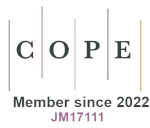General Report – Transformation of Tax Systems in the Brics Countries – 25 Years of Experience and Future Challenges – Part 1
DOI:
https://doi.org/10.18778/1509-877X.02.01Keywords:
BRICS countries, transformation, tax systems, tax policy, OECD Model Convention, UN Model Convention, tax treaties, indirect taxes, direct taxes, property taxes, tax administration, tax proceedings, taxpayers’ rights, anti-avoidance measures, BEPS ActionAbstract
This general report is the result of the international conference The Transformation of Tax Systems in the CEE and BRICS Countries – 25 years of experience and future challenges organized by the Centre of Tax Documentation and Studies in Lodz, in cooperation with the International Bureau of Fiscal Documentation (IBFD) in Amsterdam, Foundation of the Centre of Tax Documentation and Studies and the Polish Branch of International Fiscal Association (IFA). The conference was held on 9 and 10 October 2015 on the premises of the Faculty of Law and Administration of the University of Lodz.
The report deals with the general and specific legal and tax policy aspects of the transformation of tax systems in countries (Brazil, Russia, India, China and South Africa) in the years 1990–2015 in different areas of tax law: substantive, procedural and international. The future challenges for the tax laws in these countries are also covered. Identifying experience of the BRICS countries in the field of transformation of tax systems and contemporary and future challenges of these systems, is a necessary step in a quest for creating better tax legislation, more suited to the needs of taxpayers and tax administration in the modern economy. Among other things, the following issues are discussed: relations between constitutional and tax law, standards of tax legislative process, concepts and standards of national policies, the problem of tax resistance, importance and construction of different types of taxes, tax aspects of Research and Developments and other tax incentives, as well as types of available tax rulings and procedural guarantees of taxpayers’ rights and their effectiveness. Moreover, the role and importance of unilateral, bilateral and multilateral measures against double taxation, including the impact of the OECD Model Convention on Income and Capital, UN Model Convention between Developed and Developing Countries and the OECD/G20 BEPS Action Plan are highlighted.
Downloads
References
Brauner Y., Pistone P., The BRICS and the Future of International Taxation, [w:] BRICS and the Emergence of International Tax Coordination, pod red. Y. Braunera i P. Pistone, IBFD, Amsterdam 2015.
Google Scholar
Dagan T., BRICS: Theoretical Framework and the Potential Cooperation, [w:] BRICS and the Emergence of International Tax Coordination, pod red. Y. Braunera i P. Pistone, IBFD, Amsterdam 2015.
Google Scholar
Kukulski Z., Konwencja Modelowa OECD i Konwencja Modelowa ONZ w polskiej praktyce traktatowej, LEX a Wolters Kluwer business, Warszawa 2015.
Google Scholar
Lennard M., The UN Model Tax Convention as Compared with the OECD Model Convention – Current Points of Difference and Recent Developments, „Asia-Pacific Tax Bulletin” 2009, nr 1/2.
Google Scholar
Owens J., The BRICS: An Overall Perspective, [w:] BRICS and the Emergence of International Tax Coordination, pod red. Y. Braunera i P. Pistone, IBFD, Amsterdam 2015.
Google Scholar
Rocha S.A., Brazil’s International Tax Policy, Lumen Iuris Direto, Rio de Janeiro 2017.
Google Scholar
Wijnen W., Goede J. de, The UN Model in Practice 1997–2013, „Bulletin for International Taxation” 2014, nr 3.
Google Scholar
Yang B., Ping Song Ch., A Comparative Study of the OECD Model, UN Model and China’s Treaties with Respect to Rights to Tax Income and Capital, „Journal of Tax Research 2011”, t. 9, nr 3.
Google Scholar
Downloads
Published
How to Cite
Issue
Section
License

This work is licensed under a Creative Commons Attribution-NonCommercial-NoDerivatives 4.0 International License.
PlumX metrics









